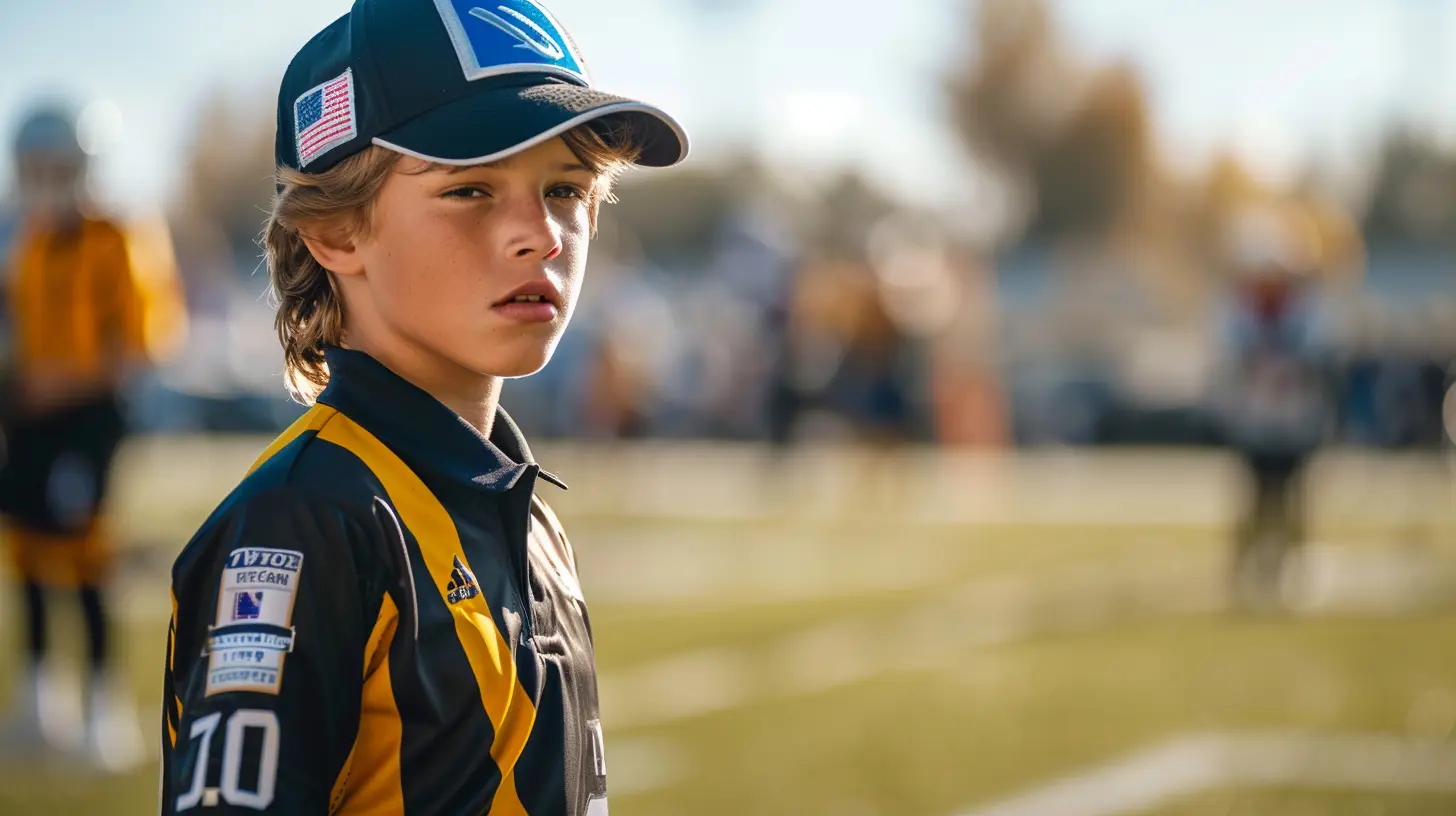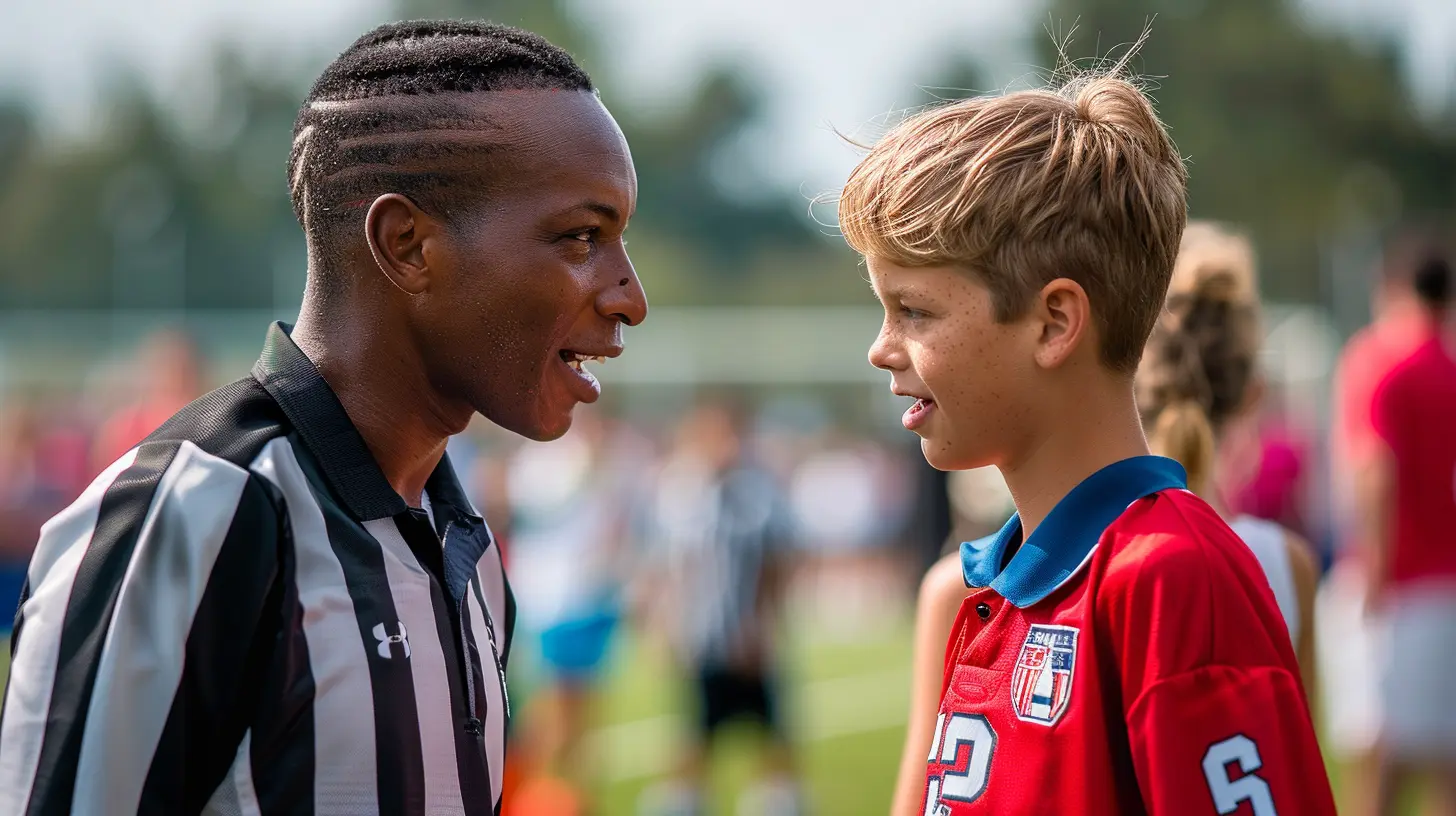Officiating in Youth Sports: Why Its More Than Just Blowing a Whistle
12 August 2025
When you think of youth sports, what’s the first image that pops into your head? Probably a group of excited kids running around a field, parents cheering from the sidelines, and coaches pacing nervously. But there’s one person often overlooked — the referee, or umpire — the official who stands in between the chaos and keeps everything in check.
Let’s get real, officiating in youth sports is way more than just blowing a whistle or raising a flag. It’s a role full of responsibility, growth, and influence — one that has a direct impact on young athletes, coaches, and even the culture of the game itself.
In fact, without officials, youth sports would be total mayhem. But the deeper truth? Officiating teaches life skills, builds character, and often leaves a lasting impression on everyone involved.
So, let’s dive in and talk about why officiating in youth sports is such a big deal. And if you’ve ever thought about picking up a whistle yourself, who knows? By the end of this, you might just be inspired to give it a shot.
The Backbone of the Game
Youth sports officials are like the unsung heroes in a blockbuster movie. You don’t always notice them — unless something goes wrong — but without them, the story simply doesn’t happen.Referees, umpires, line judges — whatever the title — are responsible for ensuring the game is played fairly, safely, and within the rules. They’re the neutral voice on the field or court, balancing emotion and logic. But officiating isn’t just about rule enforcement. It’s about setting the tone, managing personalities, and sometimes even calming heated tempers before they boil over.
They do all of this under pressure and often with very little applause. And let’s be honest — they don’t always get it 100% right. But their presence matters. In fact, the experience young athletes have during games is closely tied to the way officials run them.
Guiding the Next Generation (On and Off the Field)
Let’s think bigger than the scoreboard.Youth sports are about development — not just physically, but mentally and emotionally. And officials play a huge role in that journey. They model respect, composure, and fairness. When a young player questions a call, the official’s response can teach more than any post-game pep talk.
Just imagine this: a referee calmly explaining a call to a disappointed 10-year-old striker. That moment becomes an opportunity — to teach grace, patience, and sportsmanship. That’s powerful, right?
Kids are always watching. They see how the adults around them act — especially in tough moments. Officials who treat players and coaches with respect, who stay calm even when challenged, help set a standard for behavior that can influence a child’s mindset far beyond sports.
Building Confidence in Chaos
Officiating forces you to make quick decisions. You have to react in the moment, trust your instincts, and back yourself up — even when everyone around you disagrees.That kind of experience builds serious confidence. And not just on the field.
Many youth officials — especially those who start young themselves — say the experience shaped their ability to speak up, lead, and handle pressure in school, work, and life. You gain thick skin, learn to block out noise, and focus on the facts.
It’s like mental weight training. Every game, every call, every challenge makes you stronger.
It’s Not for the Faint of Heart
Let’s not sugarcoat it — officiating youth sports isn’t always sunshine and handshakes. There are tough days. You’ll face criticism. You might deal with angry parents or frustrated coaches. It takes resilience and a commitment to stay positive.But here's the flip side: it’s also incredibly rewarding.
When you see young athletes grow, when you feel the rhythm of a well-played game you helped manage, when a coach thanks you for your professionalism — it all clicks. You’re part of the bigger picture. And that feels amazing.
Who Becomes an Official?
The cool thing about officiating is that it welcomes all kinds of people.High school students looking for part-time work, former athletes who miss the game, teachers who love mentoring kids, parents who want to be involved — there’s room for everyone. And age doesn't matter.
You don’t need to be a pro to start. Most leagues offer training and mentorship programs. What matters more is your attitude: being fair, patient, and always ready to learn.
In fact, many officials say they started "just to help out" and ended up falling in love with it.
What You Really Learn From Officiating
You’d be surprised how much you can take away from spending a few hours a week officiating youth games. Here’s just a sampling of the life skills officials develop:- Conflict resolution – Handling disputes calmly and fairly is part of the job.
- Communication – Clear, decisive, and respectful communication is key.
- Leadership – You’re literally leading the game from the moment it starts.
- Focus – You’ve got to stay sharp from the first whistle to the last play.
- Time management – Be on time, manage game flow, and keep things moving.
Not to mention, you develop a huge amount of empathy. You start to understand where everyone is coming from — players, parents, coaches. That kind of perspective sticks with you for life.
Youth Officials – The Future of the Game
Many sports leagues are actively encouraging teens and young adults to get into officiating — and for good reason.There’s a national shortage of sports officials in many places. Games get canceled, and leagues scramble because there simply aren’t enough people to run them.
But when young people step into this role, something remarkable happens. They bring energy, relate to players better, and grow into leaders right before your eyes.
Plus, it’s a fantastic way for high school and college students to earn money doing something meaningful and fun.
Dealing With the “Noise” (A.K.A. Criticism)
Let’s talk about the elephant on the field — criticism.Every referee has a story. Someone didn’t like a call. A parent got overly passionate. A coach got in your face.
Yep, it happens. And it’s tough.
But here's the truth: criticism is a part of leadership. And with support, training, and experience, most officials learn how to manage it. The trick is to not take it personally, stay in control, and always, always lead by example.
Because at the end of the day, sports are emotional. People care. And if you can rise above the noise and stick to your values, that’s a superpower.
How We Can Support Our Officials
If we want youth sports to grow and thrive, we have to support our officials better.That starts with shifting the culture. Parents, coaches, and league organizers must set the tone — creating an atmosphere of respect and appreciation.
Here are a few ways we can all play a part:
- Thank your officials – A simple “Good game” goes a long way.
- Educate parents and players – Let them know rules and boundaries.
- Promote positive sideline behavior – No shouting. No hostility.
- Report abuse – Leagues should have zero tolerance for harassment.
Let’s build a culture where officials feel valued. Because when they thrive, the whole game gets better.
Referees Are Role Models Too
We often talk about coaches and teachers as role models — and they definitely are. But let’s not forget about the impact that comes from an official who carries themselves with integrity and confidence.Think about it. They walk into a high-stress, emotional environment, make tough calls in real-time, deal with pressure, and do it with professionalism.
That’s a role model right there.
Why You Should Give It a Try
Still thinking officiating is just for someone else? Think again.If you love sports, enjoy working with kids, or simply want to challenge yourself in a new way — this might be your perfect side hustle. The hours are flexible, the pay’s not bad, and the life lessons are priceless.
And who knows? You might become someone’s favorite referee – the one they’ll remember years later, not for a particular call, but for how you made them feel respected and supported in their early sports journey.
Final Whistle: The Bigger Picture
Officiating youth sports is so much more than enforcing rules — it’s about shaping experiences, being a mentor, and keeping the spirit of the game alive.Sure, the whistle’s part of the job. But it’s also about heart, character, and the courage to step into the arena and make a difference.
So, next time you see a referee on the field, give them a nod. They’re not just blowing a whistle — they’re building the future of sports, one game at a time.
all images in this post were generated using AI tools
Category:
RefereeingAuthor:

Umberto Flores
Discussion
rate this article
1 comments
Selkie Hamilton
Officiating shapes the game; respect and understanding are essential.
September 20, 2025 at 2:31 AM

Umberto Flores
Absolutely! Officiating goes beyond the rules; it fosters respect and teaches important life skills.


